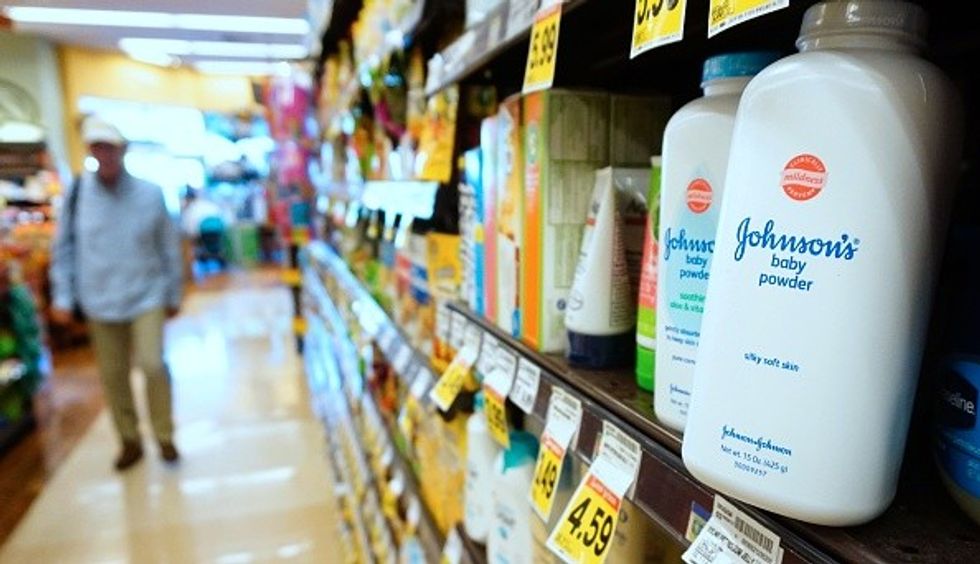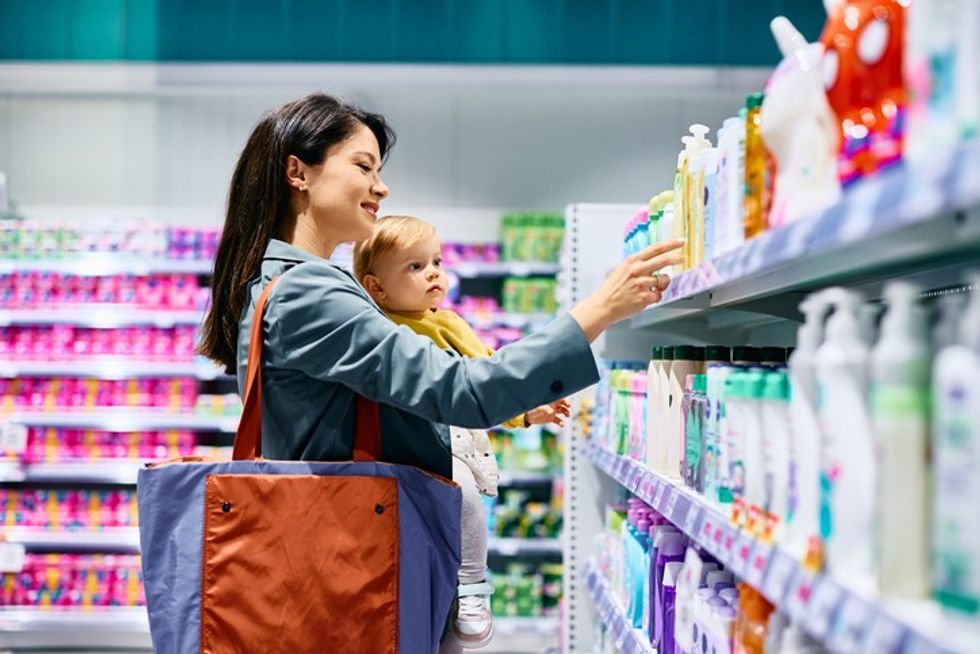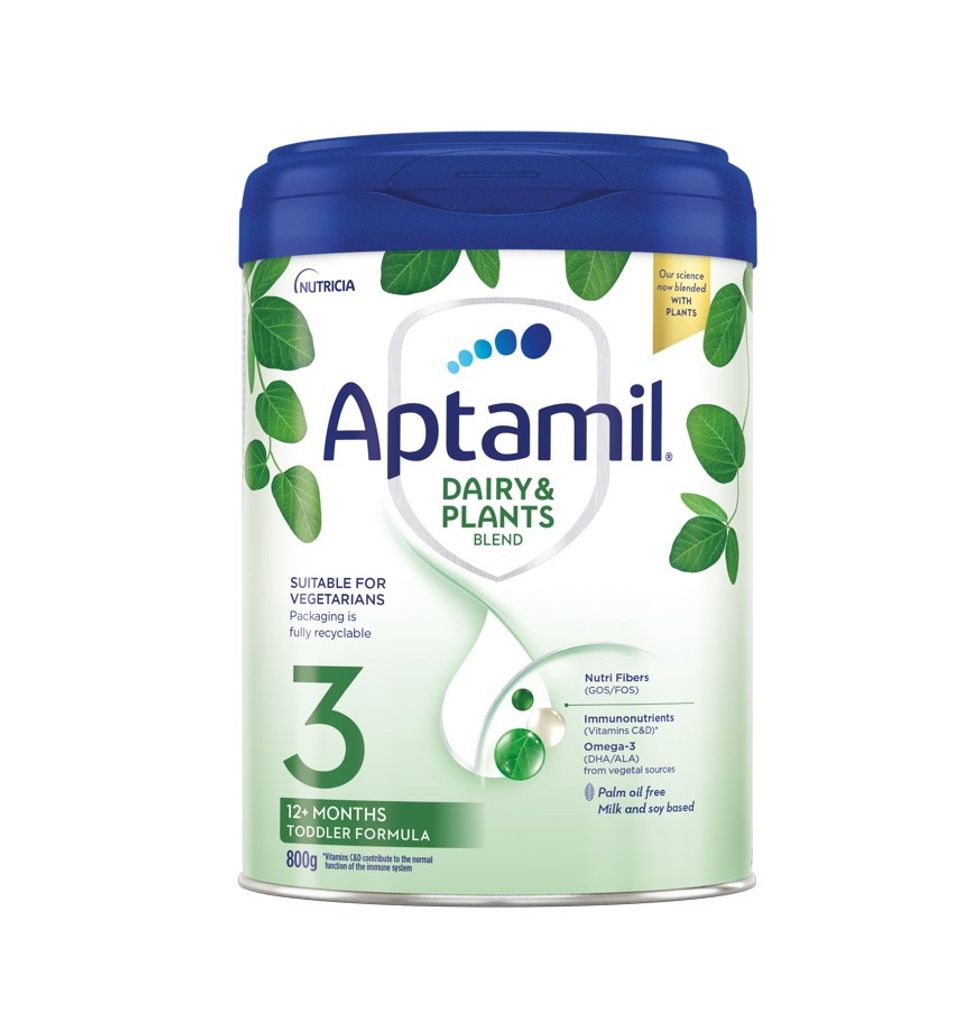In today’s world where time is a currency, local convenience stores are increasingly serving as a saviour for many, particularly to young families and sleep-deprived new parents. Including a wholesome, well-curated and wide range of baby and toddler products is not just a stroke of genius, but also a necessity clad in diapers.
Parenthood can often feel like a whirlwind of endless demands, bringing a unique opportunity for local convenience stores to alleviate some of the stress and strain faced by caregivers. By stocking baby food, formula, diapers, wipes, and other essential items, these stores become not just convenient pit stops but indispensable lifelines for parents on the go.
Baby food and other baby products might seem like a complex product line. However, having a basic line of such products in the store ensures that shoppers know where to head off to when an emergency strikes.
Unlike larger supermarkets or specialty baby stores, convenience stores are typically located within walking distance or a short drive from residential areas. This accessibility makes it convenient for parents to pick up baby supplies while running other errands or during their daily commute.
By offering a comprehensive range of products, including baby food and supplies, convenience stores can enhance customer loyalty. Parents who find the products they need for their infants at their local convenience store are more likely to return for future purchases, establishing a regular customer base.
Furthermore, c-stores that consistently stock essential items like baby food and wipes are viewed positively by the community. They are perceived as caring establishments that prioritize the convenience and needs of their customers, which can contribute to a favorable reputation and word-of-mouth recommendations.
The basic product line to cater to this section is baby food, baby milk, as well as baby and toddler care products like wipes, diapers and skin care creams. Diversifying product offerings, including baby items, allows convenience stores to tap into additional revenue streams.
The UK baby food market size reached GBP 464.1 million in 2022. The market is expected to achieve a CAGR of more than 5 per cent during 2022-2028.
The revenue in the 'Baby Food' segment of the food market in the United Kingdom was forecast to continuously increase between 2023 and 2028 by in total 182.3 million GBP (£) (+18.98 percent).
Symbols & Independents channel holds a lot of promise for baby and toddler products. According to DCS Group, convenience caters to £9.2m worth of nappies, £12.3m worth of baby wipes, £3.3m of baby toiletries, £10.9m pf baby milk and £3.9 of baby food.
Brands that rule baby milk and food section are Danone, The Hain Celestial Group, Nestlé, The Kraft Heinz Company, HiPP and Hero.
Feeding
UK market for manufactured baby foods is set to soar to £1 billion by 2024, growing by 2.5 per cent year on year,
Danone and Nestlé have between them cornered 85 per cent of the market for infant formula. While midwives are not permitted to recommend formulas, the majority of parents still pick which one to feed their child pre-birth or while in NHS hospitals and tend to stick to it.
The highly consolidated nature of the global infant formula industry has drawn increased scrutiny in recent years following chronic shortages in the US.
In the UK, infant formula prices have risen 25 per cent over the past two years, according to the competition watchdog Competition and Markets Authority. The rising cost of baby milk formula has been in the spotlight during the inflation-driven cost of living crisis, with media reports saying that some struggling parents are forced to water it down to feed their children.
The increasing working female population and rising disposable income are also aiding the market growth for baby food. According to the Office for National Statistics (ONS), in September 2021, 75.6 per cent of mothers in England were working, up from 74 per cent in 2018.
There is a paradigm shift in the organization of modern households, with most adults needing more time for home administration, particularly food preparation and cooking. As a result, there is a rise in the demand for ready-to-eat or packaged foods. Furthermore, working women, particularly new mothers, prefer ready-to-eat meal items.
However, these mothers are finicky when it comes to their little ones, particularly baby milk.
As rightly said by Matt Stanton, Head of Insight at DCS Group, baby milk is the most brand-loyal segment, with 70 per cent of shoppers more likely to switch store rather than switch brand so it’s important to have the top brands on shelf otherwise shoppers will go elsewhere.
In the total UK market, Aptamil is the number one brand with 43 per cent share, followed by Cow & Gate with 28 per cent, then SMA at 14 per cent and Kandamil with 8 per cent. The good news here is that you can cover 85 per cent of a very brand-loyal market just by stocking Aptamil, Cow & Gate and SMA.
In the impulse channel, Cow & Gate is number one with 50 per cent share, followed by Aptamil with 39 per cent and SMA with 10 per cent.
Stanton points out that 85 per cent of milk sales are powder in convenience stores, but bottles of ready-to-feed milk are important too, especially for impulse or distress purchases in more transient locations such as fuel forecourts.
There is no doubt that the market for pre-prepared food and snacks for infants is changing rapidly. The category has morphed from a simple selection of jarred purees, to an exciting and innovative array of pouches, mini-pots, steam-meals, sauces, baby pasta and even baby stock cubes. The list goes on and is constantly growing.
Good news here is that these endless innovations in this category have a positive impact on the overall market growth. The baby and children’s food market now encompasses a wide range of products from infant formula to pre-prepared foods, lunch box treats and kid’s ready meals. Across all ranges, pouches are now outselling jars by three to one and constitute a 56 per cent (59 per cent in convenience) share of this increasingly popular sub-category.
Baby cereals are also something that is catching the attention of parents owing to its association with milk. Finger foods have been the most buoyant category, with a high level of innovation. Baby food is more focused on age stage than on brand, so a product range that covers all the ages in multiple different formats will sell the best. A good range comprises pouches, jars, snacks and porridge (or baby rice).
The biggest baby food brands in the UK market are Ella’s Kitchen, Heinz, HiPP Organic and Piccolo, Stanton adds, saying it’s worth stocking snacks for slightly older children too, such as ones from Sunny raisins.
In a recent survey by Which?, Ella’s Kitchen was the brand that most parents had tried something from its extensive range- be it purées in pouches, meals or snacks. It is also deemed as ideal for little ones with dietary requirements, as many of its products are free from dairy, gluten, nuts, egg and soya.
The brand recently announced the collaboration with SABIC to create a new cap made from recycled plastic under which over 3.5 million pouches of Ella’s Kitchen’s Organic Strawberries and Apples pouches will have this new cap.

Ella’s Kitchen has also recently added “tasty and healthier snacking alternative” for children aged more than three years.
Organix ranked in second place, with its new Little Ruskits which are grabbable, munchable, mashable vanilla-flavoured finger foods that make an ideal first food for weaning babies. They are versatile as they can be mixed with a baby’s usual milk and served with a spoon at 6 months+, or served whole as a finger food from 8 months+.
While Little Ruskits are big on taste, makers claim that they are also low on sugar. In fact, Little Ruskits have been created with 33 percent less sugar on average than other branded baby rusks and biscuits. This is following consumer research that highlighted sugar content in baby biscuits was the number one concern for parents.
Heinz range of food for babies, first launched to help parents face the challenges of raising a baby in a financial crisis in 1931, still ranks high in parent’s shopping lists. The maker is now trying to tap into vegan wave with its latest plant-based range, called Heinz for Baby Pulses.
Kraft Heinz has also expanded savoury baby food range, adding Immunity Support pouches
New kid on the block here is Else Nutrition. This US brand has recently announced the launch of its plant-based toddler drink in the UK.
Most recently, Weetabix announced its latest family-focused collaboration to inspire imaginations and promote healthier snacking for kids and families via its exciting new range of Marvel inspired, HFSS-compliant children’s cereal bars.
The Marvel Oaty Bars, which contain just 3.2g of sugar per bar, less than half the sugar of its nearest competitor, are available in three flavours- white chocolate, milk chocolate, and caramel.
Love and Care
COVID-19 has accelerated parents’ concerns towards babies’ skin health as 63 per cent (Mintel) of parents of 0-4s who buy babies’ personal care products, nappies or wipes think that babies’ skin can be damaged by washing/cleaning a lot. Brands and retailers can look to innovate in moisturising claims, microbiome-friendly formulas and natural antibacterial ingredients to appeal to these concerns.
Stanton from DCS Group says, “In nappies, the biggest trend is the shift from taped nappies into untaped or ‘pants’. Pants sells well better in larger sizes. If you have very limited space and have to choose either pants or taped nappies, choose pants in sizes 5 and 6 and taped nappies in smaller sizes.”
The baby wipes category is quite straightforward. Retailer own-label products make up almost half of the total UK market, with much of the rest driven by Huggies and Pampers.
In independents and symbols the story is slightly different – Pampers is the market leader (40 per cent share), followed by retailer own label (29 per cent), and Huggies in third place (24 per cent), adds Stanton.
Stanton says, “Water wipes is an important brand, too. Currently the fourth-biggest wipes brand in the UK, the products retail at a higher price (usually around £3 or more), and they have a highly loyal base of shoppers, so they’re a great way to grow incremental sales if you have space for them on shelf.”

A retailer’s core baby range should also cover cotton buds, nappy cream, shampoo, bath, moisturizer, baby oil and baby powder. Johnson’s is the first choice for all except nappy cream, where Sudocrem is the leading brand.
Johnson’s Baby is synonymous with baby toiletries and unsurprisingly it’s the biggest brand in the UK. In the independent convenience channel, Johnson’s Baby dominates with 93 per cent share of the toiletries market (excluding nappy cream).
Nappy and healing creams are important too, with Sudacrem and Bepanthen being the leading brands.
Another noteworthy name here is Little Heroes Sensitive baby wipes, that were recently launched in price-marked packs. The range, available at Unitas wholesale member depots, offers independent retailers the opportunity to stock a high-quality product at a competitive price point.
Little Heroes Sensitive baby wipes have the same claims and credentials as market-leading brands, at a more attractive price point making it a must have for all independent retailers. The makers state that Little Heroes offers baby wipes have been approved by pediatricians, dermatologists and gynecologists, thus making them safe for people of all ages to use, including babies and those with sensitive skin.
In addition, all packaging is 100 per cent recyclable and can be recycled alongside plastic bags at supermarkets, making it easy for consumers to dispose of them responsibly.
Cheruby Trends
Parents are conscious and make well-thought decisions. So it is best that retailers should know what’s on their minds and what are they looking for.
Across all food categories, no added sugar claim is gaining traction increasingly. Both makers as well as the shoppers are keeping such a claim at a high pedestal, something which is shaping the latter’s buying behaviour.
No wonder, Kendamil and Piccolo are becoming more popular, majorly owing to emphasis on their organic and palm oil-free credentials.
Baby food market is witnessing substantial growth owing to the rising demand for organic food, which is proven to be healthy and full of nutrition components. Plant-based baby and toddler food is also something which is seeing a lot of innovation and development owing to the overall rise in popularity of vegan living.
British vegan baby food startup Mamamade is seeing encouraging sales, showing that there is huge demand. Gerber too is tapping into this trend with the launch of its new plant-based baby food line made with a variety of beans, legumes, veggies, and fruit.
In care section, the biggest trend is the shift from taped nappies into untaped or ‘pants’.
Stanton says, “Pants sell better in larger sizes, so very small stores where space is more limited should offer pants in sizes 5 and 6, and taped nappies for the smaller sizes. If you have enough space, stock both pants and taped in all sizes.”

New age parents are more aware and mindful of their choices.
As Stanton puts it, with the oldest of Gen Z consumers now in their mid-20s, many of them have now become parents. These shoppers are hyper-connected and tech-savvy.
He says, “Product quality is a key driver for baby care products. For baby nappies shoppers, preventing unexpected nappy leaks is high on the agenda because of the inconvenience, disruption and discomfort. With this in mind, product quality is of paramount importance and shoppers will buy a product or brand that they know they can trust.”
Brand loyalty rules in this aisle so much so that parents will visit a store only if they know the place has their usual product or brand in stock.
Stanton warns, “When these shoppers cannot find their usual product on shelf, 62 per cent of them will switch to another store… and they will take their entire basket with them.”
UK shoppers are still making fewer shopping trips compared to before the pandemic, and therefore looking to get as much as they can all in one place. What is more, families with young children are busy, and 86 per cent of them plan their shopping missions in advance, so they will plan to shop in store they know stocks their usual brands.
Put these facts together and it becomes clear why it is so important to stock a comprehensive core range of baby care products.
Don’t forget the price-marked-packs (PMPs). According to Stanton from DSC Group, a good majority (63 per cent)of shoppers think PMPs mean “I am not being over-charged".
Not all consumers understand that the cost-to-serve model means convenience stores generally need to be slightly more expensive than supermarkets, so a good range or PMPs is important to give shoppers price confidence.
PMPs are important to retailers too. Most (80 per cent) of retailers think shoppers like PMPs while 71 per cent of retailers say that PMPs give shoppers confidence in the price. 71 per cent of retailers say that with PMPS, shoppers do not blame the retailer for the price, says Stanton.
Smart Tricks
Visibility is key, as such shoppers stock up on impulse. And let’s face it, new parents are the most tired and forgetful beings on Earth. They may not always plan their purchases in advance, so good visibility can help them a lot. Positioning and smart merchandising is the key in this aisle where it is crucial to catch shoppers’ attention.
Position the baby care category towards the front of store or near the till point, in a place that’s easily accessible for a shopper with a push chair or a buggy.
Stanton says, “Remember that Baby Care shoppers plan in advance and they need to know you stock the right products, otherwise they’ll shop elsewhere, and they’ll take their whole basket with them. Baby care shoppers are much higher than the average shopper, so you don’t want to lose them.
“Therefore, locating the category where it’s easily visible will help retailers capture more of these shoppers. Stocking these products close to the till also decreases the risk of shrinkage, with baby milk being particularly high value.”
Stanton says. “Young families spend significantly more than the average grocery shopper, so attracting these shoppers will help you grow your sales. Less than half of their extra spend is on the baby categories themselves, so these shoppers will help you grow sales across your whole grocery range.
Stocking care products behind the till creates a purchase barrier, as the shopper needs to ask for them. If you really do need to keep them behind the till, make sure the price is displayed clearly so the shopper doesn’t need to ask.
Bundles of Joy
Baby food and care section is a vibrant ever-evolving world. At the same time, it is also one of the highly-scrutinised.
A recent research published online in the Archives of Disease in Childhood pointed out that an average of nine promotional claims can be found on the packaging of individual UK baby foods.
These claims are largely unregulated, and often imply some indirect health benefit, known as the ‘healthy halo effect,’ which may be confusing for parents, say the researchers. The World Health Organization (WHO) has called for the establishment of standards for the promotion of commercial baby foods to align with best practice recommendations on infant feeding.
On the other hand, CMA too is keeping an eye on baby formula market. Other health experts often claim that toddler drinks have more sugar than regular juices. These are some facts and news that retailers should keep abreast of to answer concerned parents’ queries.
Convenience stores are often frequented for emergency or last-minute purchases. Parents may find themselves in situations where they urgently need baby food, diapers, wipes, or other
essential baby products. Having these items stocked in convenience stores ensures that parents can quickly access them when needed.
For parents navigating the unpredictable seas of parenthood, local stores can serve as sanctuaries offering not just snacks and sodas but also the emergency nappy. So, let's raise a sippy cup to the local store and acknowledge that sometimes, amidst the chaos of life, the most important item on the shopping list is convenience for both parent and child.







